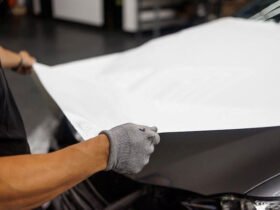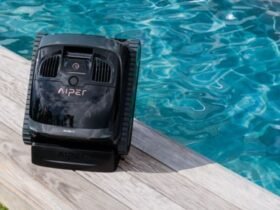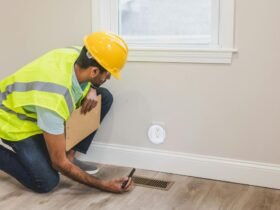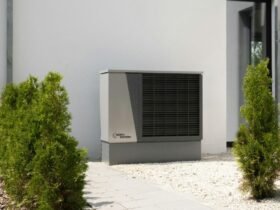In today’s world, enhancing your home’s energy efficiency and sustainability is more important than ever. With rising energy costs and increasing awareness of environmental issues, homeowners are seeking practical ways to reduce their impact on the planet while also saving money. Fortunately, there are numerous strategies that can help you achieve a more energy-efficient home without sacrificing comfort or style.
From installing solar panels to upgrading insulation and adopting smart home technology, each step plays a vital role in creating a sustainable living environment. Many of these improvements not only lower energy bills but also contribute to a healthier home for you and your family. By making informed choices about water usage, landscaping, and lighting, you can create a home that is both eco-friendly and cost-effective.
This article explores ten actionable strategies that can significantly enhance your home’s energy efficiency. Whether you’re considering a complete overhaul or simply looking to make a few improvements, these tips will guide you on your journey to a more sustainable home.
Let’s dive into the practical steps you can take today to make a lasting difference for your home and the environment.
Consider Working for Renewable Energy
Harnessing solar energy is one of the most effective ways to enhance your home’s energy efficiency and sustainability. A solar company can guide you through the installation process, helping you choose the right system for your needs. By utilizing solar panels, you can significantly reduce your reliance on conventional electricity sources. Not only does this lower your energy bills, but it also minimizes your carbon footprint. Many solar companies offer financing options and tax incentives that can make this transition more accessible. With advancements in technology, solar panels have become more efficient and affordable, making them an attractive option for homeowners looking to invest in renewable energy.
Upgrade Your Insulation
Proper insulation plays a crucial role in maintaining the temperature inside your home, which directly affects energy consumption. Upgrading insulation can be a game-changer in improving your home’s energy efficiency. Various insulation materials are available, such as fiberglass, foam, and cellulose. Each material has its unique benefits, so it’s essential to evaluate your home’s specific needs. For example, if your attic is poorly insulated, heat loss during winter and heat gain in summer can increase your energy bills significantly. Installing high-quality insulation can help you save money while keeping your home comfortable year-round.
Invest in Energy-Efficient Appliances
Switching to energy-efficient appliances is another vital step toward enhancing your home’s sustainability. These appliances, certified by Energy Star, use significantly less energy than their traditional counterparts. This means lower electricity bills and less strain on your home’s energy system. When shopping for new appliances, look for the Energy Star label, which indicates that the product meets strict energy efficiency guidelines. Examples include refrigerators, washing machines, and dishwashers. While the initial investment may be higher, the long-term savings make it a worthwhile choice. Additionally, many utility companies offer rebates for purchasing energy-efficient appliances, making them even more affordable.
Seal Windows and Doors Properly
Drafty windows and doors can lead to considerable energy loss in your home. Properly sealing these areas can enhance your home’s insulation and make it more energy-efficient. Simple measures, like applying weather stripping or caulking around windows and doors, can significantly reduce drafts. This not only keeps your home more comfortable but also reduces the workload on your heating and cooling systems. If your windows are old or damaged, consider upgrading to double-pane or low-E glass options. These modern windows offer better insulation and can keep your home comfortable throughout the year, further reducing energy costs.
Implement Water-Saving Fixtures
Water conservation is an essential aspect of enhancing your home’s energy efficiency. By implementing water-saving fixtures, homeowners can significantly reduce water usage and the energy required to heat it. Low-flow faucets and showerheads are excellent choices that can cut water usage by up to 30% without sacrificing performance. Dual-flush toilets also help conserve water by allowing users to choose between a full or partial flush. These fixtures not only contribute to sustainability but also lower water bills. Installing water-efficient appliances, such as washing machines and dishwashers that meet Energy Star standards, can further decrease water consumption while maintaining high performance.
Choose Sustainable Landscaping Practices
Sustainable landscaping practices can enhance your home’s energy efficiency by optimizing natural resources. Planting native plants is an effective way to create a low-maintenance garden that requires less water and fewer chemicals. Native species are adapted to the local climate and can thrive with minimal irrigation. Incorporating shade trees around your home can also lower cooling costs during hot months by blocking sunlight from hitting the roof and windows. Xeriscaping, which focuses on drought-resistant plants and efficient irrigation, helps minimize water usage while providing an attractive landscape. These practices not only enhance your home’s aesthetic appeal but also promote environmental stewardship.
Consider a Home Energy Audit
A home energy audit is a valuable tool for identifying areas where your home can improve its energy efficiency. During an audit, a professional evaluates your home’s energy use and pinpoints inefficiencies. They may assess insulation levels, air leaks, and appliance efficiency, providing a comprehensive overview of how to enhance your home’s performance. Many utility companies offer free or low-cost energy audits, making this an accessible option for homeowners. The recommendations you receive can guide you in prioritizing upgrades, leading to significant energy savings and a more sustainable home.
Switch to LED Lighting
Transitioning to LED lighting is a simple yet impactful way to enhance energy efficiency. LED bulbs use up to 80% less energy than traditional incandescent bulbs while lasting significantly longer—often up to 25,000 hours. This not only reduces your energy consumption but also decreases the frequency and cost of bulb replacements. Additionally, LED lighting is available in a variety of styles and color temperatures, making it easy to find the right fit for your home’s décor. Switching to LEDs can contribute to substantial savings on your electricity bill, especially in areas with heavy lighting use, like kitchens and living rooms.
Enhancing your home’s energy efficiency and sustainability involves a multi-faceted approach. From working with a solar company to upgrading insulation and adopting smart home technology, every step contributes to a more sustainable living environment. Implementing water-saving fixtures and sustainable landscaping practices further promotes conservation. Regular energy audits and awareness of local programs can help you stay on track with your goals. Each of these strategies not only reduces your energy consumption but also fosters a healthier planet for future generations. Making these improvements can lead to significant savings, increased comfort, and a positive impact on the environment. Embracing these changes is an investment in both your home and the future.













